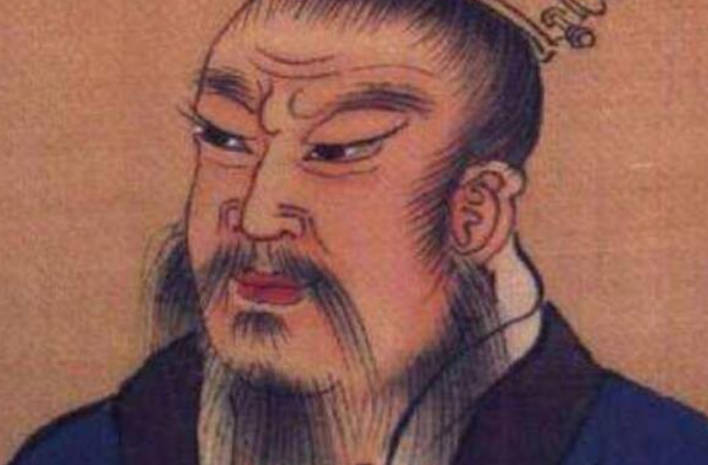There have been many heroes in ancient China, but there may not be many heroes who can be called heroes. These people are decisive and capable in doing things, and they can have extraordinary achievements in turbulent times. Next, we will come Learn about the top ten famous heroes in ancient China.
1. King Goujian of Yue越王勾践
In 496 BC, King Goujian of Yue came to the throne. In the same year, Zai Li defeated the Wu division. In the third year of Goujian, king of Yue (494 BC), he was defeated by the Wu army in Fujiao and was forced to seek peace with Wu. Three years later, he was released and returned to the state of Yue. After returning to the state, he used Fan Li and Wenzhong again, tried his best to try his best, and gradually restored the national strength of the state of Yue. In the fifteenth year of Goujian, king of Yue (482 BC), King Fuchai of Wu raised his troops to participate in the meeting of Huangchi, in order to show his force and lead the elite. Gou Jian, the king of Yue, seized the opportunity and led his troops to rise up and defeated the Wu army. Fucha hastily made an alliance with the state of Jin and returned. He lost a series of battles with Goujian and had to make peace with Vietnam. In the nineteenth year of Goujian, king of Yue (478 BC), Goujian once again led his army to attack the state of Wu. In the twenty-fourth year of King Goujian of Yue (473 B.C.), he broke the capital of Wu, forced Fu Chai to commit suicide, destroyed Wu and became hegemony, and crossed the Huai River with troops. near Jinping Mountain in the city), and became the last overlord in the Spring and Autumn Period.
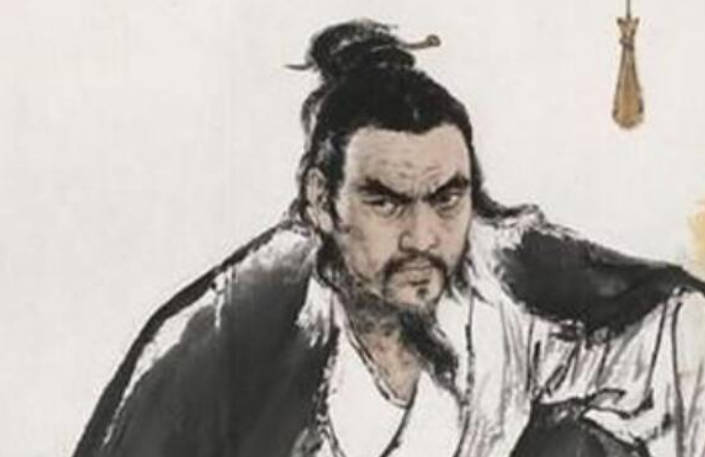
2.Zhu Yuanzhang朱元璋
Ming Taizu Zhu Yuanzhang (October 21, 1328-June 24, 1398), courtesy name Guorui, formerly known as Zhu Chongba and Zhu Xingzong. A native of Zhongli in Haozhou (now Fengyang, Anhui). The founding emperor of the Ming Dynasty (reigned from 1368 to 1398), with the reign title “Hongwu”.
Zhu Yuanzhang was poor when he was young, and he used to herd cattle for the landlord. In the fourth year of Zhizheng (1344), he entered Huangjue Temple, traveled around, and increased his knowledge. At the age of twenty-five, he joined the Red Scarf Army led by Guo Zixing to rebel against the Yuan Dynasty. In the 16th year of Zhizheng (1356), Jiqing Road was captured and renamed Yingtian, and in the 24th year of Zhizheng (1364), he was called King Wu. He successively wiped out Chen Youliang, Zhang Shicheng and other separatist forces, and in the first year of Wu (1367), under the call of “expel the barbarians and restore China”, he dispatched Xu Da and Chang Yuchun to make a northern expedition to overthrow the rule of the Yuan Dynasty. In the first month of the first year of Hongwu (1368), the emperor was located in Yingtianfu, the name of the country was Daming, and the name of the reign was Hongwu. In the autumn of the same year, he captured Dadu and ended the rule of the Yuan Dynasty in the whole country. After that, the southwest, northwest, Liaodong and other places were pacified, and finally the whole country was unified.
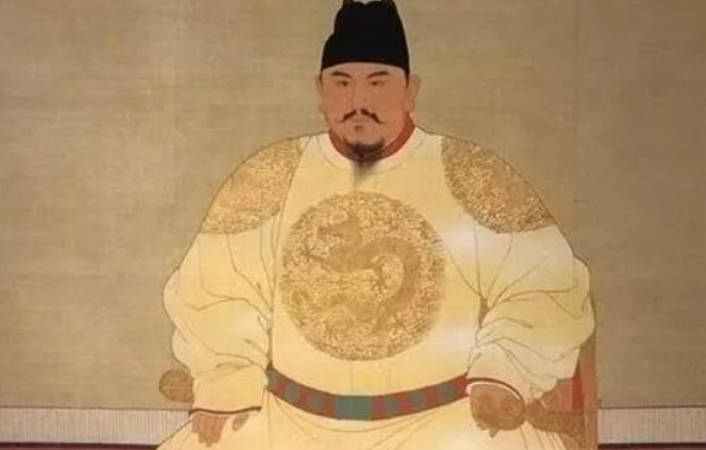
3.Zhao Kuangyin赵匡胤
Song Taizu Zhao Kuangyin (March 21, 927-November 14, 976), nicknamed Xianghaier. A native of Zhuojun (in other words, Baozhou), he was born in Jiamaying, Luoyang (now Dongguan, Danghe District, Luoyang City, Henan Province). A military strategist, statesman, and strategist from the Five Dynasties to the early Northern Song Dynasty, and the founding emperor of the Song Dynasty (reigned from February 4, 960 to November 14, 976). The second son of Zhao Hongyin (Song Xuanzu), the commander of the Protector of the Holy Capital in the Later Zhou Dynasty, and his mother was Du Shi (Empress Zhaoxian).
Zhao Kuangyin joined the privy envoy Guo Wei in the Later Han Dynasty and served in the army. During the reign of Emperor Shizong Chai Rong of the Later Zhou Dynasty, he accompanied the Northern Han Dynasty and the Southern Tang Dynasty with outstanding military exploits. When Chai Rong was seriously ill, he was promoted to inspector in front of the hall and became the supreme commander of the imperial army. In the seventh year of Xiande (960), he was ordered to resist the Northern Han and Khitan coalition forces. Immediately, he was supported as emperor in the “Chenqiao Mutiny”, and returned to Beijing to persecute Emperor Zhou Gong to abdicate. In the same year, Zhao Kuangyin ascended the throne as emperor, changed Yuan Jianlong, the country was named “Song”, and was called Song Dynasty or Northern Song Dynasty in history. During Zhao Kuangyin’s reign, according to Prime Minister Zhao Pu’s strategy of “first south and then north, first easy and then difficult”, he successively destroyed the southern separatist regimes in Jingnan, Wuping, Houshu, Southern Han and Southern Tang, and completed the unification of most of the country. Since the mid-Tang Dynasty, since the mid-Tang Dynasty, the local governors had supported the self-righteousness of the soldiers. Through two “drinking wine to release the military power”, the generals of the banned army and the military power of the local vassals were dismissed, the civil and military relations were adjusted, and while the unification war was carried out, the reform The official system strengthened the centralization of power. However, since its beginning, the policy of emphasizing culture over military affairs and focusing on domestic defense has gradually formed, which has an impact on the formation of the poor and weak situation of the Song Dynasty.
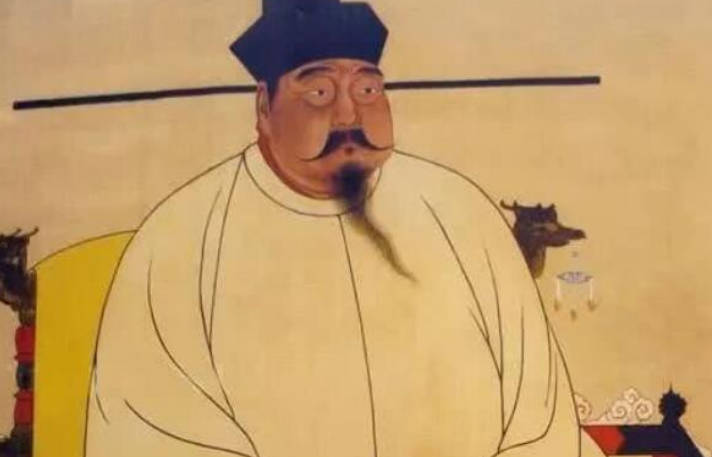
4.Zhu Wen朱温
Later Liang Taizu Zhu Wen (December 5, 852-July 18, 912), reigned from the first year of Kaiping (907) to the second year of Qianhua (912). Born in Dangshan, Songzhou (now Dangshan County, Anhui Province), the founding emperor of the Later Liang Dynasty, Tang Xizong bestowed the name “Zhu Quanzhong”, and changed his name to Zhu Huang after he ascended the throne.
In the second year of Qianfu (875), he participated in the peasant uprising army led by Wang Xianzhi and Huang Chao, and successively captured Luoyang, Chang’an and other places, greatly shaking the dominance of the Tang Dynasty. In the second year of Zhonghe (882), he belonged to the Tang army Wang Chongrong and Yang Fuguang, and jointly suppressed Huang Chaojun with Li Keyong. Because of his meritorious service in suppressing Huang Chao’s army, he was named “Quan Zhong” by Emperor Xizong of Tang Dynasty, and served as the deputy envoy of Henan Zhongxing Camp. The next year, he paid homage to the governor of Bianzhou and served as the Jiedu envoy of the Xuanwu Army, and then he was appointed king of Liang. With Henan as the center, he tried his best to expand his power, and gradually became the largest separatist power in the late Tang Dynasty. In the first year of Emperor Zhaozong of Tang Dynasty (901), Zhu Wen led his army into Guanzhong and took control of the central government of the Tang Dynasty. In the first year of Tianyou (904), Tang Zhaozong was forced to move to Luoyang by force, and Zhaozong was killed soon after. Li Zhaozong’s son Li Wei was established as the emperor, that is, Emperor Ai of Tang Dynasty (also known as Emperor Zhaoxuan). In the fourth year of Tianyou (907), Zhu Wen seized the throne of Emperor Ai of the Tang Dynasty through the form of abdication, proclaimed himself emperor on behalf of the Tang Dynasty, and was named Liang after the founding of the country.
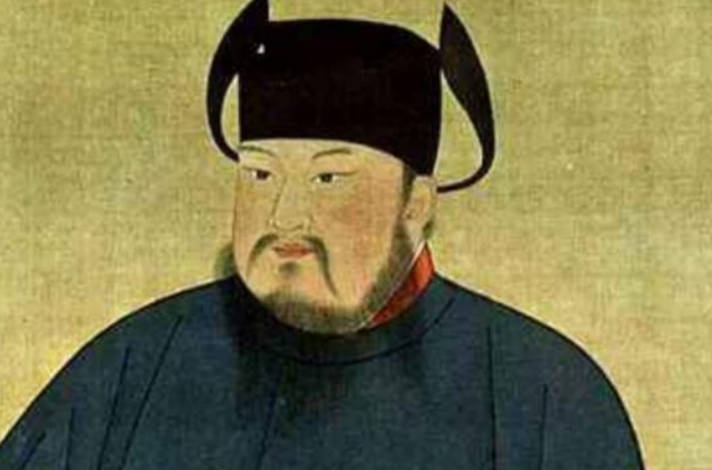
5.Gao Huan高欢
Gao Huan (496-February 13, 547), with small characters He Liuhun, was originally from Jixian County, Bohai County (now Jingxian County, Hebei Province), and was born in a family of soldiers in Huaishuo Town. The official of the Eastern Wei Dynasty and the founder of the Northern Qi Dynasty. Because his grandfather Gao Mi broke the law, he moved to Huaishuo Town and became a Xianbei Han.
Gao Huan was born in the Gao family in Bohai. In his early years, he participated in the Duluo Zhou uprising army, and then defected to Ge Rong. Later, he rebelled and surrendered to Er Zhurong and became a trusted governor. He tried to persuade Er Zhurong to proclaim himself emperor, but failed. After Er Zhurong’s death, Gao Huan incorporated the rest of the six towns, suppressed the Qingzhou refugee uprising, and served as the chief of the third town and the governor of Jinzhou. In the first year of Putai (531), he set up troops in Xindu in June, and invaded Luoyang the following year, overthrew Erzhu’s group, and supported Emperor Xiaowu Yuanxiu. In the first month of the second year of Yongxi (533), he wiped out the remnants of the Erzhu family and took control of the Northern Wei Dynasty as the prime minister and king of Bohai. In October of the third year of Yongxi (534), Gao Huan forced Emperor Xiaowu to leave, and made Yuan Shanjian the emperor, who was Emperor Xiaojing, and moved the capital to Yecheng, known as the Eastern Wei Dynasty in history. Gao Huan lived in Jinyang, remote control of the Eastern Wei Dynasty, and monopolized power for sixteen years. In the annexation battle with the Western Wei Dynasty for many years, he was defeated in the Battle of Tongguan and the Battle of Shayuan in the East and West Wei Dynasty because he underestimated the enemy. In the first year of Wuding (543), he led 100,000 troops to the north bank of the Yellow River to fight against the Western Wei army. He broke the boat set on fire by the Western Wei army before the upper reaches of the river bridge, and saved the river bridge from being burned. After crossing the Yellow River and taking Mang Mountain as the formation, they faced off against the Western Wei army. After many twists and turns, they finally won. In October of the fourth year of Wuding (546), he led an army to besiege Yubi of the Western Wei Dynasty, raised earth mountains, dug tunnels, and fought hard for 50 days, day and night. So worried and angry became sick.
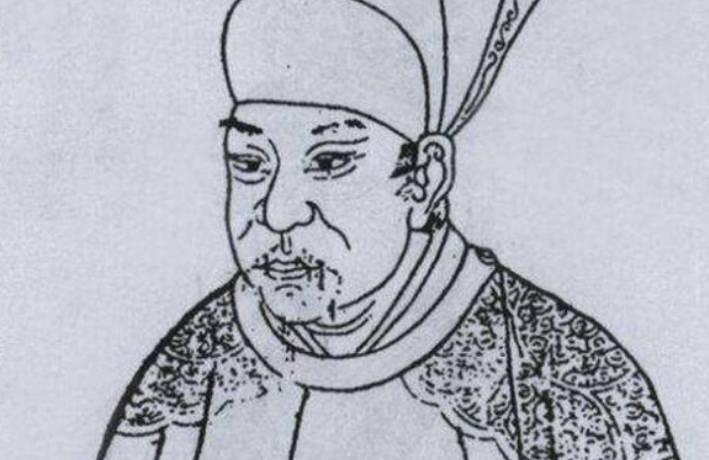
6.Liu Yu刘裕
Emperor Wu of the Song Dynasty Liu Yu (April 16, 363-June 26, 422), courtesy name Deyu, nicknamed Jinu. Born in Suiyuli, Pengcheng County, Pengcheng County (now Xuzhou City, Jiangsu Province), he was born in Jingkouli, Dantu County, Jinling County (now Zhenjiang City, Jiangsu Province). An outstanding statesman, reformer, and military strategist from the Eastern Jin Dynasty to the Southern and Northern Dynasties in China, and the founding monarch of the Liu Song Dynasty in the Southern Dynasties (reigned from July 10, 420 to June 26, 422).
Liu Yu grew up in a poor family, and later joined the Beifu Army as a general. Since the third year of Emperor Long’an of Jin’an (399), he pacified Sun En’s uprising internally, eliminated Huan Chu, Xi Shu, Lu Xun, Liu Yi, Sima Xiuzhi and other separatist and rebellious forces, and brought about a unification that had not been seen in a century in the south. Situation: Externally wipe out Nanyan, Houqin and other countries, surrender Qiuchi, and defeat the Northern Wei cavalry with the Queyue formation, recover Huaibei, Shandong, Henan, Guanzhong and other places, and recover the two capitals of Luoyang and Chang’an. Relying on his great military achievements, he was able to take over the military and political power of the Eastern Jin Dynasty, worship Xiangguo, Yangzhou Mu, and be named King of Song Dynasty.
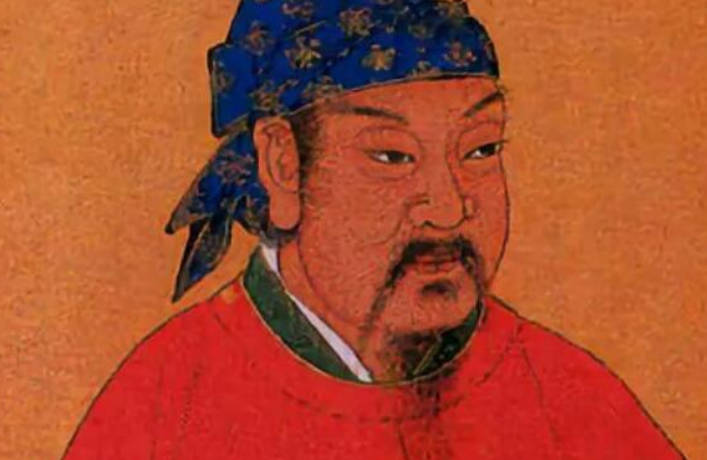
7.Shi Le石勒
Shi Le (274-August 17, 333), courtesy name Shilong, was born in Wuxiang, Shangdang (now north of Yushe, Shanxi), and was of the Jie nationality. After the Sixteen Kingdoms period, Zhao Kaiguo was the emperor (reigned from 319 to 333).
Shi Le’s father and grandfather were all tribal commanders. He was a strong and powerful man since he was a child. He was a trafficker in Luoyang and worked as a farmer. He was plundered and sold to Shandong by officials in the Western Jin Dynasty as a farming slave. During the reign of Yong’an, he gathered together with the refugee Marshal Ji Sang and others to raise troops. Later, he voted Liu Yuan as a general, moved to Hebei, defeated the Jin army repeatedly, galloped Jianghan, and won consecutive battles. Chased and wiped out more than 100,000 Jin troops in Ningping City, wiped out the kings who had fled from Luoyang to the east, and greatly increased their strength. He also built the “Gentlemen’s Camp”, cooperated with the Han scholars, respected Zhang Bin as the mastermind, and moved his troops northward to occupy Xiangguo and eliminate Wang Mi and You Wang Jun of Bingzhou, Liu Kun of Bingzhou, Shaoxu of Jizhou, and Duan Pidao of Liaoxi, controlled the three prefectures of Bing, You, and Hebei, rested in peace and tranquility, accumulated strength, and prevented the ancestors of the Eastern Jin Dynasty from the northern expedition. In the second year of Guangchu (319), he claimed to be the Heavenly King of Dazhao, established his capital in Xiangguo, and was called Houzhao in history. Then it developed to Henan, occupying Si, Yu, Xu, Yan and other states, and the Huai River was the boundary with the Eastern Jin Dynasty. At the end of Taihe Yuan Dynasty (early 329), he fought a decisive battle with the former Zhao army in the west of Luoyang City, captured the former Zhao emperor Liu Yao, and destroyed the former Zhao army. Afterwards, the Qin, Long, Di and Qiang tribes also joined in one after another, so that Later Zhao basically unified the northern half of China. In the third year of Taihe (330), Shi Le proclaimed himself emperor.
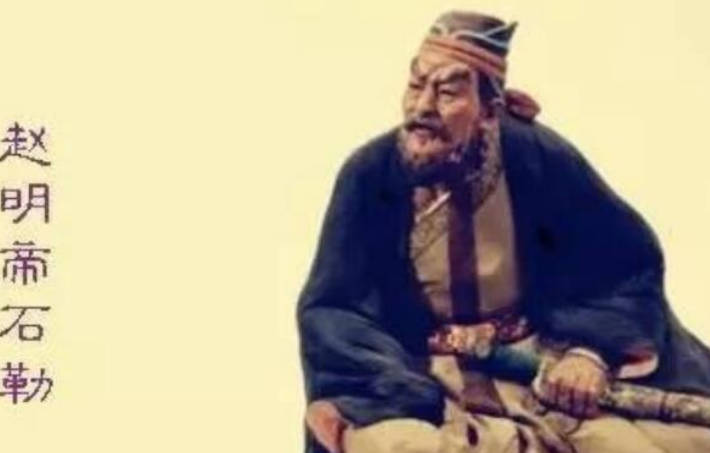
8.Murongchui慕容垂
Murongchui (approximately 326-June 2, 396), courtesy name Daoming, small character Shuren, Xianbei name A Liudun, was born in Jicheng, Changli (now Yixian County, Liaoning Province), and was of the Xianbei nationality. During the Sixteen Kingdoms period, the founding monarch and military strategist of Later Yan, the fifth son of Murong Hao, the former Yan Wenming Emperor, and his mother Lan Shuyi.
Brave and good at fighting, brave and extraordinary. At the age of thirteen, he fought with his father and made many military exploits. In the second year of Jianyuan (344), the crusade against Yuwen Yidougui led to the dispersal of the Yuwen Department. In the fifth year of Yonghe (349), he offered a strategy to attack Hou Zhao, captured Youzhou, and canonized King Wu. In the sixth year of Jianxi (365), he cooperated with Luoyang to conquer Luoyang, and paid homage to General Nan and Jingzhou Mu. In the tenth year of Jianxi (369), he defeated Huan Wen, the great Sima of the Eastern Jin Dynasty, and severely set back the pace of Huan Wen’s usurpation of the Jin Dynasty. After the death of Dazai Murongke, he was jointly persecuted by Taifu Murongping and Queen Mother Kezuhun. He defected to Fu Jian, the former king of Qin Dynasty, and served as the champion general. In the seventh year of Taiyuan (382), he urged Fu Jian to attack the Eastern Jin Dynasty. After the Battle of Feishui, he escorted Fu Jian back to Luoyang. Returning to Yecheng, planning to restore the country, defeated the former Qin emperor Fu Pi, defeated the famous Eastern Jin general Liu Laozhi, and defeated Ding Ling and Goguryeo. In the first year of Jianxing (386), he officially proclaimed himself emperor, and later destroyed Zhai Wei and Xiyan, and almost restored the territory of the former Yan at its peak. Restoration of Hu and Han divisions, with Prince Murong Bao as the Great Chanyu.
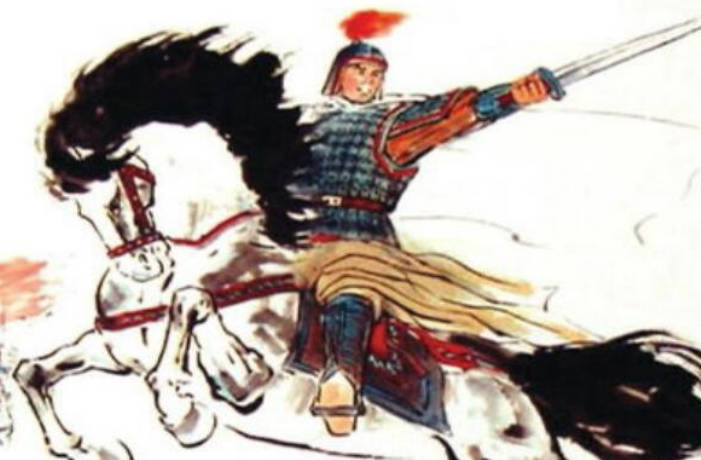
9.Cao Cao曹操
Cao Cao (155-March 15, 220), courtesy name Mengde, alias auspicious, small character Aman, said that his original surname was Xiahou, and he was born in Qiao County, Peiguo (now Bozhou City, Anhui Province). An outstanding statesman, strategist, writer and calligrapher in ancient China. He was a power minister at the end of the Eastern Han Dynasty and the founder of the Cao Wei regime. Son of Taiwei Cao Song.
Cao Cao was a young man who was alert, dissolute as a chivalrous man, and died in his career. At the age of 20, Xiaolian was promoted to be a man, and he was awarded the northern captain of Luoyang. Later, he served as the captain of cavalry, participated in the suppression of the Yellow Turban Army, and transferred to Jinan Prime Minister. When Dong Zhuo was in charge of the government, he scattered his family wealth and raised an army to fight against Dong Zhuo with Yuan Shao and others. In the third year of Chuping (192), according to Yanzhou, more than 300,000 Yellow Turban Army were divided and induced to surrender, and their elite were selected as Qingzhou Army. In the first year of Jian’an (196), he greeted Emperor Xian of the Han Dynasty to Xu. Before and after that, Yuan Shu, Tao Qian, Lu Bu and other forces were successively defeated. In the fifth year of Jian’an (200 years), Yuan Shao’s main force was defeated in the Battle of Guandu, and then Yuan Shang and Yuan Tan were flattened, Wuhuan was attacked in the north, and the north was successfully unified. In the thirteenth year of Jian’an (208), he became prime minister. In the same year, he led his army to march south and made an emergency landing on Liu Cong in Jingzhou, but was defeated by the combined forces of Sun and Liu in the Battle of Chibi. In the sixteenth year of Jian’an (211), the Guanzhong coalition forces were defeated in the Battle of Weinan. In the eighteenth year of Jian’an (213), he was granted the title of Duke Wei. In the 20th year of Jian’an (215), he conquered Zhang Lu himself and took Hanzhong. In the following year (216), he became king of Wei. In the twenty-fifth year of Jian’an (220), he died of illness in Luoyang at the age of sixty-six. After his son Cao Pi proclaimed himself emperor on behalf of the Han Dynasty, he was honored as Taizu, posthumously named Emperor Wu, and buried in Gaoling.
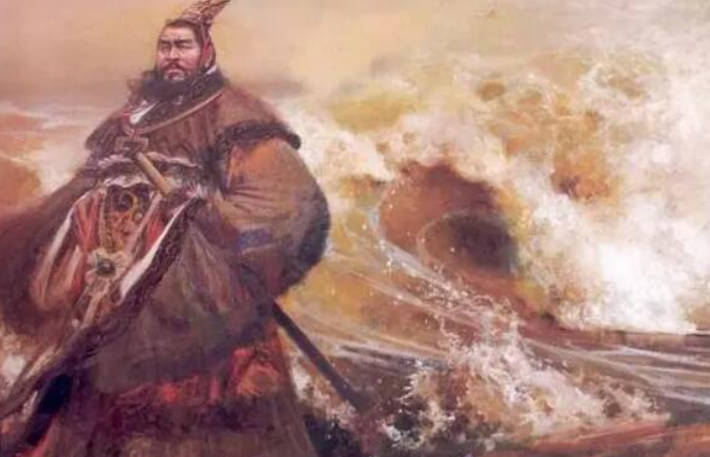
10.Liu Bang刘邦
Liu Bang (256 BC/247 BC – June 1, 195 BC), Zi Ji, was born in Zhongyangli, Fengyi, Peixian County (now Fengxian County, Xuzhou City, Jiangsu Province), an outstanding politician and strategist in Chinese history, The founding emperor of the Han Dynasty.
Liu Bang was born in a farming family, and he is open-minded and generous. After the establishment of the Qin Dynasty, he served as the head of the pavilion in Sishui, Pei County. Later, because of the release of prisoners, he died in Mangdang Mountain. After Chen Sheng’s uprising, he gathered three thousand children to respond, captured Pei County, called himself Pei Gong, defected to Xiang Liang, the leader of the anti-Qin rebel army, served as the head of Dang County, and was granted the title of Marquis of Wu’an. In the third year of Qin II (207 BC), he led his army to Bashang, accepted the surrender of Qin Prince Ying, abolished the harsh laws of the Qin Dynasty, and made three chapters. After the Hongmen Banquet, he was granted the title of King of Han and ruled Bashu and Hanzhong. In May of the same year, he returned to the land of the Three Qin Dynasties and established his capital in Liyang. He was able to know people well, accept advice humbly, give full play to the talents of his subordinates, actively integrate the forces opposing Xiang Yu, the overlord of Western Chu, and finally forced Xiang Yu to defeat himself. . Later, Liu Bang was located on the north bank of Dingtao flooding and established the Western Han Dynasty. Later, the capital was moved to Chang’an. After proclaiming himself emperor, Liu Bang successively eliminated Zang Tu, Han Wangxin, Han Xin, Peng Yue, Yingbu and other princes with different surnames in order to stabilize his rule, and enfeoffed nine princes and kings with the same surname; Soldiers return home, exempt from corvee, emphasize agriculture and suppress business, restore social economy, appease the people, and stabilize the rule. After the “Siege of Baideng”, he announced the opening of the border city to ease the relationship between Han and Hungary. In the twelfth year of the Han Dynasty (195 BC), Liu Bang was seriously injured during the crusade against the Yingbo rebellion, and died after formulating the “White Horse Alliance”.
